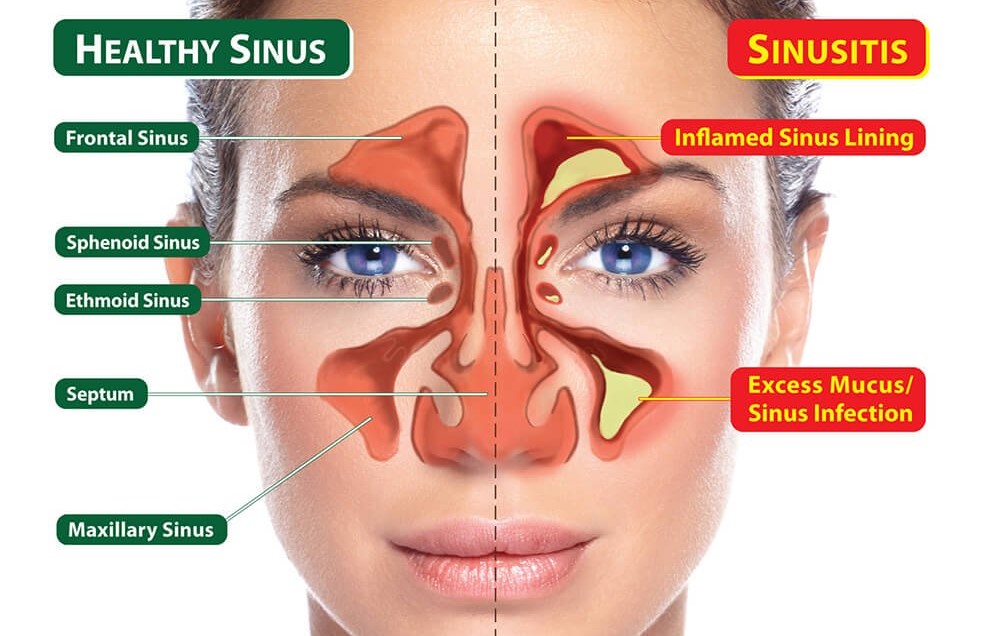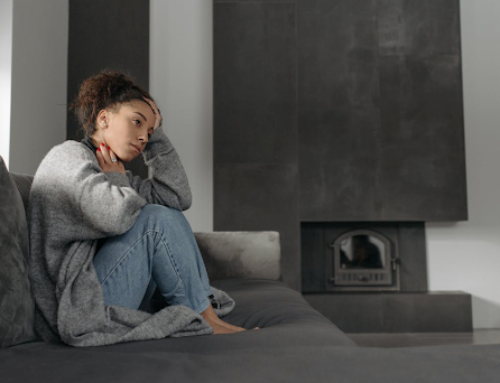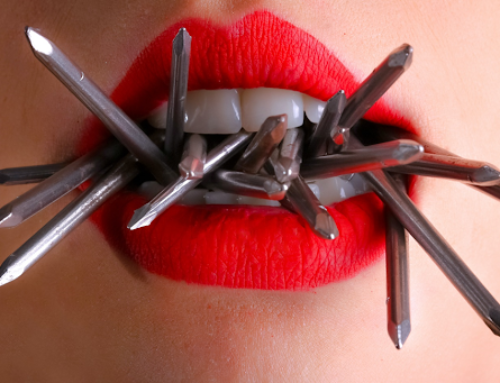
Sinusitis is the swelling or inflammation that occurs on the tissues of the paranasal sinuses. Acute sinusitis is temporary. You can use decongestants and antibiotics as a treatment.
However, when the swelling blocks the sinus opening, it prevents any mucus from draining, leading to a reinfection with severe symptoms. When the condition becomes chronic, you may have to treat it using medication or surgery. The state may become chronic after about four recurrences of acute sinusitis.
What are the common causes of a sinusitis blockage?
Healthy sinuses can block and fill up with fluids that support the growth of germs because of a common cold and allergy attack. It can also occur because of nasal polyps, which are small growths occurring on the nose lining and a deviated septum.
What are some symptoms of sinusitis?
When you suffer from sinusitis, you may often experience a runny nose, loss of smell, nasal obstruction, fatigue, fever, bad breath, facial pressure, and dental pain. A doctor can make a diagnosis when you have more than two symptoms.
An acute sinusitis may last more than four weeks. Chronic sinusitis, on the other hand, can last for about 12 weeks.
What is the right treatment for sinusitis?
If your infection is simple, a doctor may recommend the use of saline nasal washes or decongestants. However, you should not use a decongestant for over three days.
A doctor may also prescribe you antibiotics to use for 10 to 14 days. A nasal congestion relief in Los Angeles that you can try when at home is using a vaporizer or inhaling warm and moist air.
If you don’t respond to home therapies, your doctor may recommend sinus surgery as a form of blocked sinus relief in Los Angeles. However, recovery often follows with pain and scarring.
You can, therefore, opt to get a balloon sinuplasty procedure Los Angeles. It involves inserting a small balloon in the nose to help restructure the sinus opening and unblock the sinuses. The process is minimally invasive, safe, and helps to deal with the problem effectively.
What should you expect during a physical examination for sinusitis?
When you visit a physician, they will examine your nose, ears, and throat and other facial features where swelling and redness may occur. The physician may press the sinuses to feel if they are tender and tap your teeth as they try to determine if you have an inflamed sinus.
During the process, the doctor may conduct several checks that include a CT scan, mucus culture study, endoscopy, x-rays, and allergy testing.
Are there any other treatment options for sinusitis?
Avoid any triggers that can lead to the development of sinusitis. When you develop allergies, your doctor may prescribe the use of antihistamines. If you have a fungal infection, you may receive an antifungal prescription from your caregiver.
Are there ways to prevent sinusitis?
There is no given way to prevent the development of sinusitis. However, a sinus relief in Los Angeles you may try is to avoid unhealthy practices such as smoking or becoming a passive smoker.
Wash your hands thoroughly and avoid touching your face when suffering from a cold or flu. Also, avoid items that may give you an allergy.
What happens if you do not treat your sinuses?
If you don’t get a sinusitis treatment in Los Angeles, you will experience unnecessary pain and discomfort. In rare cases, you may develop bone and bone marrow infections and meningitis or brain abscess.





